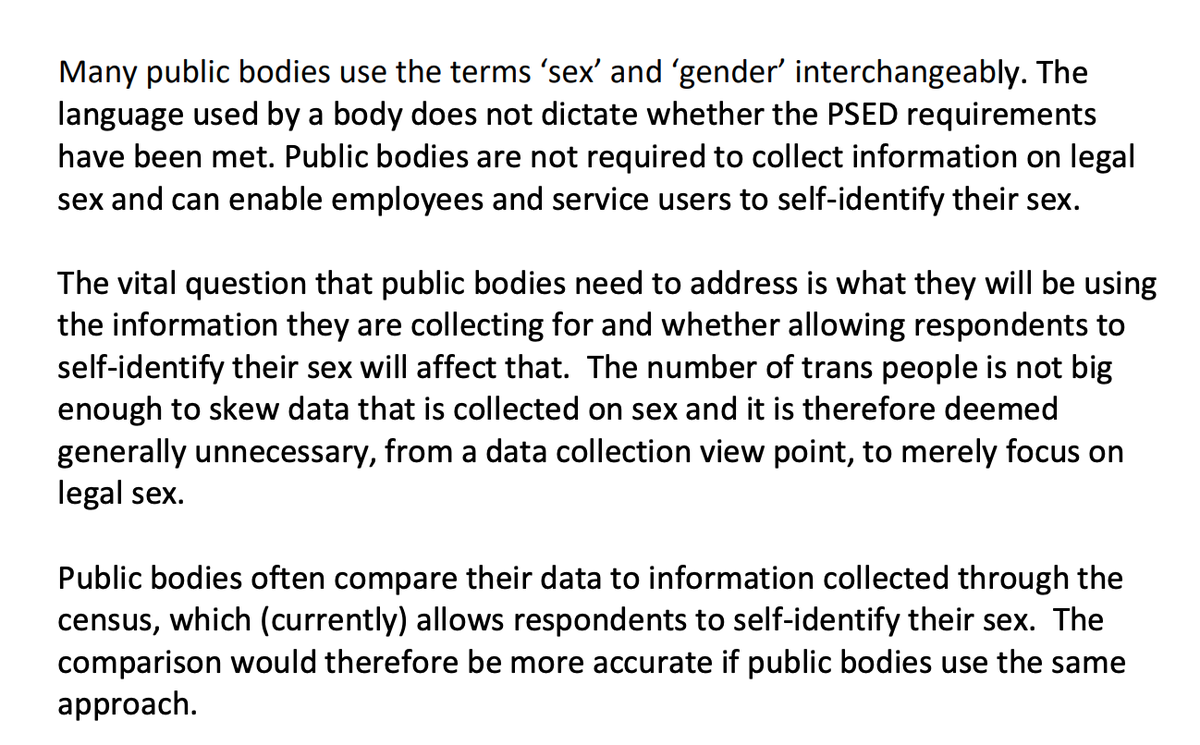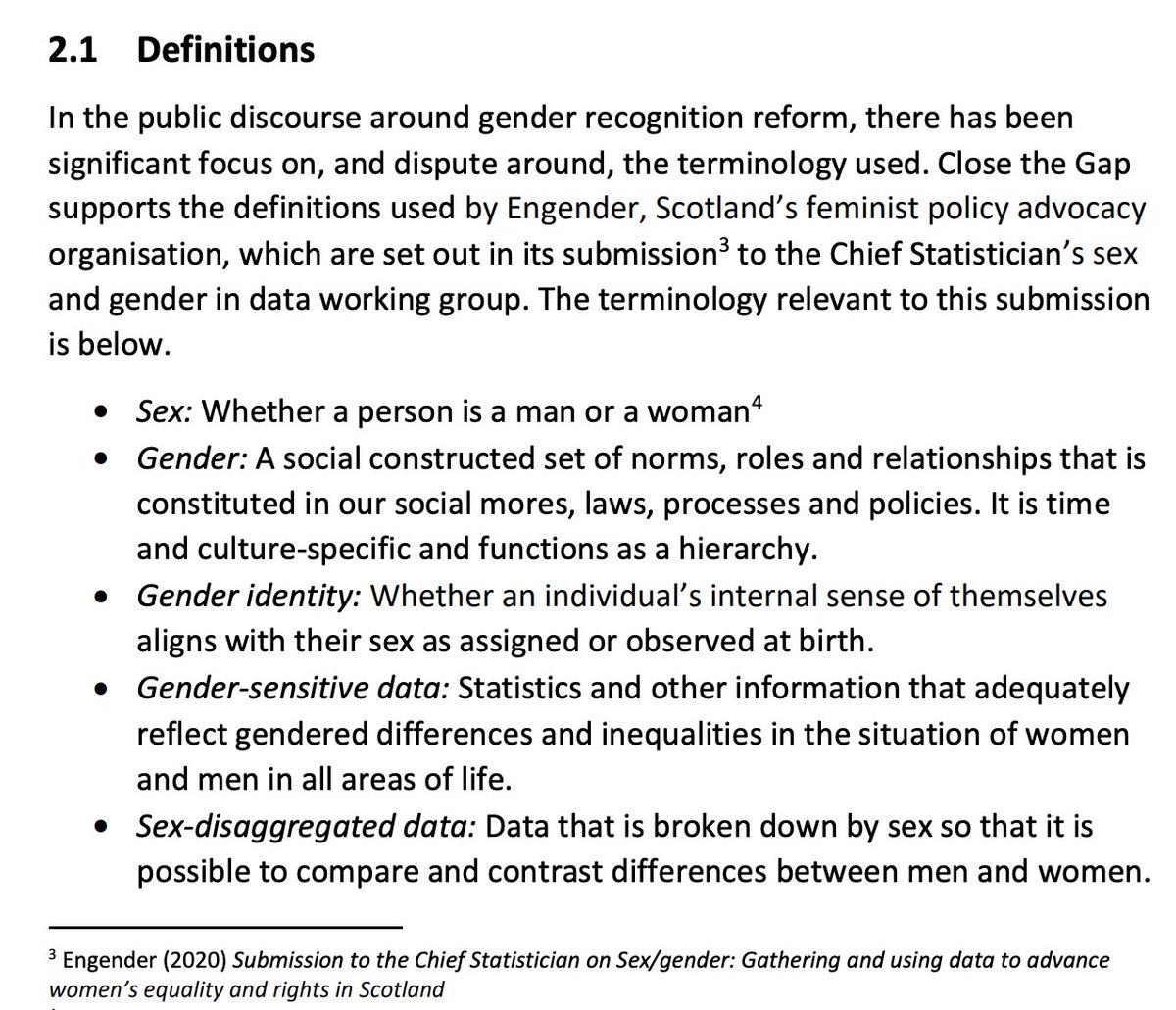An opportunity is being lost here to gather sex disaggregated data on a disease that all the emerging evidence suggests has differing effects on men and women both clinically but also in terms of its impact on income levels, employment etc. #sexmatters https://twitter.com/CCriadoPerez/status/1247504524136321026">https://twitter.com/CCriadoPe...
This follows the worrying decision to frame the sex question in the 2021 census as being about a respondent’s self-declared gender identity, despite strong concern expressed by 80 senior experts on the analysis of population data.
https://www.parliament.scot/S5_European/General%20Documents/CTEEA_2019.12.18_Sullivan.pdf">https://www.parliament.scot/S5_Europe...
https://www.parliament.scot/S5_European/General%20Documents/CTEEA_2019.12.18_Sullivan.pdf">https://www.parliament.scot/S5_Europe...
This means the data gathered next March on health, income and employment, among other things, will not be open to reliable analysis by sex. The post-COVID population-wide snapshot the census can provide will be flawed by design.
Data on self-defined sex looks at first sight like sex-disaggregated data but in practice muddies researchers’ and policy makers’ ability to track the patterns associated with being born male or female. There is a separate question on trans identity in Scotland, England & Wales.
Sub-groups of the population who express a higher than average prevalence of identifying as a member of the opposite sex will be especially affected. Figures from @Transgendertrd on huge increase in numbers of young girls presenting with gender dysphoria: https://www.transgendertrend.com/surge-referral-rates-girls-tavistock-continues-rise/">https://www.transgendertrend.com/surge-ref...
The census will set the context for many other UK data collection exercises. Scottish Government’s working group on sex and gender in data is looking at the wider picture. We wrote to the Chief Statistician with our concerns in January: https://mbmpolicy.files.wordpress.com/2020/01/murrayblackburnmackenzie-letter-to-the-working-group-on-sex-and-gender-data-chair-20-january-2020-final.pdf">https://mbmpolicy.files.wordpress.com/2020/01/m...
The @ehrcscotland has submitted a note to the group which downplayed the need for anything other than identity-based data on men and women: https://www.gov.scot/binaries/content/documents/govscot/publications/minutes/2019/09/sex-and-gender-in-data-working-group-meeting-september-2019/documents/ehrc-submission-on-collecting-and-presenting-data-on-sex-and-gender/ehrc-submission-on-collecting-and-presenting-data-on-sex-and-gender/govscot%3Adocument/EHRC%2Bsubmission%2Bon%2Bcollecting%2Band%2Bpresenting%2Bdata%2Bon%2Bsex%2Band%2Bgender.pdf">https://www.gov.scot/binaries/...
It appears that other organisations have submitted evidence to the working group although not all those submissions have been made public. Close The Gap& #39;s submission on GRA reform refers to evidence from Engender although this is not in the public domain. https://www.closethegap.org.uk/content/resources/Close-the-Gap-response-to-the-GRA-reform-bill.pdf">https://www.closethegap.org.uk/content/r...
NHS Scotland already enable patients to change the sex marker on their health record if patients request it (they do not need to have a GRC or to have undergone any medical or surgical reassignment procedures to do so). https://murrayblackburnmackenzie.org/2020/01/12/recording-sex-on-medical-records-a-case-study-of-nhs-scotland/">https://murrayblackburnmackenzie.org/2020/01/1...

 Read on Twitter
Read on Twitter



